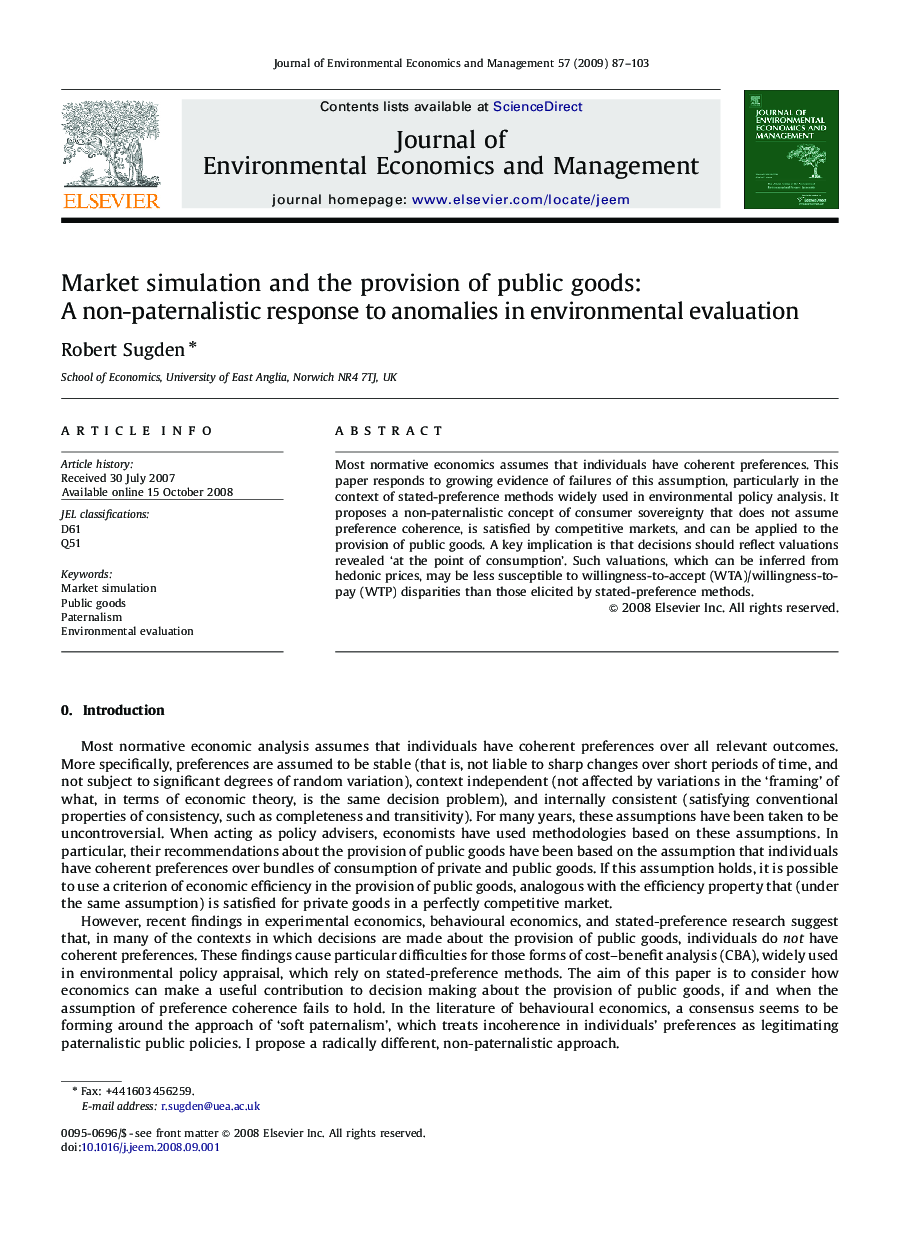| Article ID | Journal | Published Year | Pages | File Type |
|---|---|---|---|---|
| 959346 | Journal of Environmental Economics and Management | 2009 | 17 Pages |
Most normative economics assumes that individuals have coherent preferences. This paper responds to growing evidence of failures of this assumption, particularly in the context of stated-preference methods widely used in environmental policy analysis. It proposes a non-paternalistic concept of consumer sovereignty that does not assume preference coherence, is satisfied by competitive markets, and can be applied to the provision of public goods. A key implication is that decisions should reflect valuations revealed ‘at the point of consumption’. Such valuations, which can be inferred from hedonic prices, may be less susceptible to willingness-to-accept (WTA)/willingness-to-pay (WTP) disparities than those elicited by stated-preference methods.
